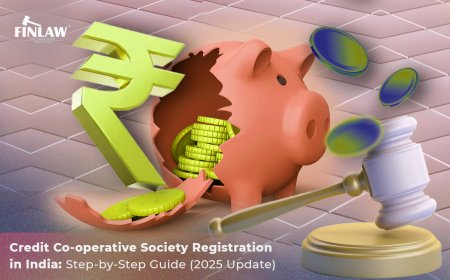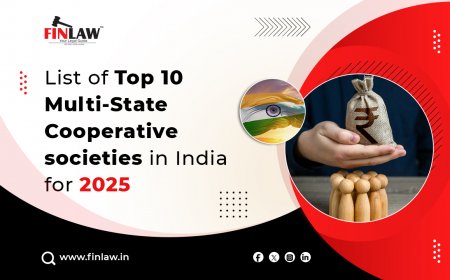The Importance of NOCs for Multi-State Cooperative Societies in India
Multi-state cooperatives in India need NOCs to operate across borders. Learn why NOCs are vital for legal compliance, trust & smooth business for MSCS.

In the dynamic landscape of Indian cooperatives, Multi-State Cooperative Societies (MSCS) play a crucial role in fostering economic and social development across state borders. These member-owned entities operate in multiple states, offering a wider reach and access to resources. However, navigating the legal framework for smooth functioning requires obtaining a vital document – the No Objection Certificate (NOC). This article delves into the significance of NOCs for MSCS in India and explores the process of acquiring them.
Understanding the NOC:
A No Objection Certificate, often abbreviated as NOC, signifies that a registered society has fulfilled its obligations and has no outstanding dues or liabilities within its state of registration. It essentially acts as a clearance certificate, granting permission to the society to operate in other states.
Why are NOCs Important for MSCS?
For MSCS seeking to expand their operations beyond their registered state, obtaining an NOC is mandatory. Here's why it holds such importance:
-
Legal Compliance: Operating in multiple states necessitates adhering to the Multi-State Cooperative Societies Act, 2002. This act mandates the procurement of NOCs as a prerequisite for inter-state functioning.
-
Credibility and Trust: An NOC serves as a testament to the society's financial stability and responsible conduct within its home state. This bolsters the confidence of members, investors, and potential partners in other states.
-
Smooth Business Operations: With a valid NOC, MSCS can establish branches, open bank accounts, and conduct business activities seamlessly across different states. This eliminates unnecessary hurdles and delays.
-
Access to Resources: An NOC paves the way for MSCS to tap into resources and opportunities available in other states. This could involve collaborating with local cooperatives, accessing funding options, or participating in government schemes specific to those regions.
The NOC Acquisition Process:
The process of obtaining an NOC for an MSCS typically involves the following steps:
-
Application: The society needs to submit a formal application to the Registrar of Cooperative Societies in the state of registration.
-
Documentation: The application must be accompanied by a set of documents, including a certified copy of the society's registration certificate, audited financial statements, and a resolution passed by the governing body authorizing the application for an NOC.
-
Scrutiny: The registrar's office will scrutinize the application and documents to ensure the society has met all legal and financial obligations within the state.
-
Clearance: Upon verification, the registrar's office will issue the NOC, signifying the society's compliance and granting permission to operate in other states.
Additional Considerations:
-
Timeframe: The processing time for obtaining an NOC can vary depending on the workload of the registrar's office. It's advisable to initiate the process well in advance to avoid delays in inter-state expansion plans.
-
State-Specific Requirements: While the core principles remain similar, some states might have additional requirements or variations in the application process. Consulting with a cooperative lawyer or the relevant state registrar's office can ensure a smooth application.
-
Renewal: NOCs typically have a validity period, often ranging from one to three years. Societies need to be proactive in renewing their NOCs before expiry to avoid disruptions in their operations.
Conclusion:
For MSCS in India, acquiring an NOC is not just a legal formality; it's a crucial step towards successful multi-state operations. The NOC signifies responsible governance, financial stability, and opens doors to wider growth opportunities. By understanding the importance of NOCs and following the proper application process, MSCS can pave the way for a flourishing cooperative venture across state borders.
What's Your Reaction?



















